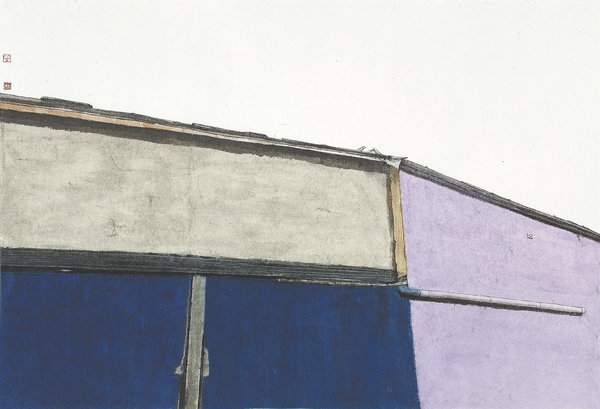

In his foray into ink, Du has transplanted that graceful palette, while the decline in detail, which accentuates the expressive nature of ink, lends his subjects spirituality.
He has also shifted his focus from the historical narratives of the public murals he was commissioned to produce, to more casual scenes of towns and villages, lotus pools, floral bouquets and coconuts in the market.
Zhang Gan, the exhibition's curator, says that whether it is the court ladies of the past, or ripe pumpkins at a countryside bazaar, Du always tries to capture the spirit of his home culture.

"In ancient paintings, villages are often painted between mountains and trees, almost like accessories of the landscape," Zhang says. "In Du's paintings, villages and even old, dilapidated houses are the focus, and his brushwork lends them an unsophisticated beauty, a poetic, nostalgic touch rare in the fast-paced urban life."
Du's minimalist tendencies are reminiscent of Muxi, a 13th-century monk, whose depictions of fruits and vegetables include large blank expanses with a philosophical touch.
Beneath his layering and shading, however, Du expresses a different mood.
Zhang says Du paints the fruits, vegetables and flowers to celebrate the diversity and vigor of life.

Pan Lusheng, a scholar and Du's friend of more than three decades, says that when Du paints what he sees and has in mind, his strokes are as free as writing prose, resonating deeply with the hearts of his audience.
"He is well-balanced in painting the real and the unreal," Pan says.
He adds that Du seeks to show the true beauty of country life, and portrays it with the romanticism found in the work of Tao Yuanming, the 5th-century poet, and the same strength of the lines of Su Shi, the renowned Song Dynasty (960-1279) essayist.
Du says that painting is about reality and is derived from people's ideals.
"It is a system, grounded in wisdom and spirituality accumulated over centuries, and it is inexhaustible."